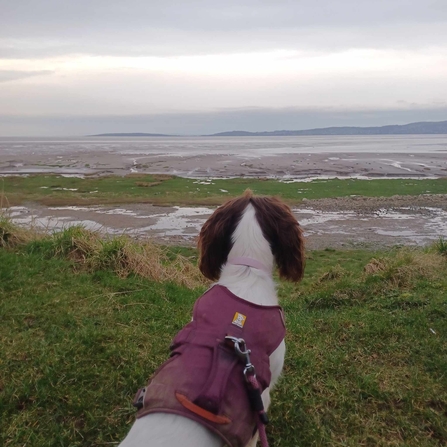The Wildlife Trusts and the Dogs Trust are urging dog owners to do their bit when visiting nature reserves by keeping their pets on leads during ground-nesting season.
Springtime brings with it the arrival of many migratory species, who travel thousands of miles to nest on nature reserves across the country and are vulnerable to disturbance between February and August.
Keeping dogs close by will help ensure that ground-nesting birds such as skylarks, lapwings, and nightjars are not harmed during the breeding season. Unsupervised dogs can cause birds to abandon their nests, so it’s vital that they are kept under control.
Interactions between people and nature at this time of year can have long-lasting effects and a significant impact on the breeding success and survival rates of the birds.
Many dog owners are passionate about nature and want to avoid harming it. However, even the most well-behaved dogs can unintentionally cause distress or damage wildlife, simply by following their natural curiosity.
Birds perceive dogs as predators and when dogs roam freely, birds may abandon their nests, leaving eggs and chicks cold and unprotected.

